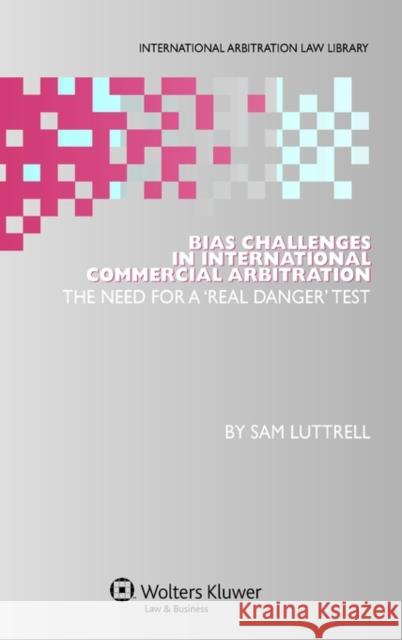Bias Challenges in International Commercial Arbitration: The Need for a 'real Danger' Test » książka
Bias Challenges in International Commercial Arbitration: The Need for a 'real Danger' Test
ISBN-13: 9789041131911 / Angielski / Twarda / 2009 / 296 str.
Bias Challenges in International Commercial Arbitration: The Need for a 'real Danger' Test
ISBN-13: 9789041131911 / Angielski / Twarda / 2009 / 296 str.
(netto: 1059,29 VAT: 5%)
Najniższa cena z 30 dni: 1074,75
ok. 16-18 dni roboczych
Bez gwarancji dostawy przed świętami
Darmowa dostawa!
Private international actors go to arbitration to avoid adjudicatory risks, especially the risk of bias. It follows that safeguarding procedural fairness is a key concern in arbitral processes, and that exposing actual bias is crucial. However, evidence from both case law and institutional statistics shows that wily parties are willing to abuse procedural fairness and cry bias as a way of delaying proceedings and escaping enforcement, and that the frequency of such spurious challenges is increasing. This insightful book offers a proposal, solidly grounded in legal principle and precedent, for how the arbitration community should respond to this threat. The author shows how and#8216;dirtyand#8217; challenge tactics are made viable primarily by the prevalence of a judicially derived test for bias which focuses on appearances, rather than facts. He argues that the most commonly used test of bias, the and#8216;reasonable apprehensionand#8217; test, makes it easy to allege a lack of impartiality and independence. He shows that the and#8216;real dangerand#8217; test, derived from the decision of the House of Lords in Gough, has a much higher threshold, and has the additional advantage of making the arbitral award stronger at the all-important enforcement stage. In the course of the presentation the book analyzes, in extraordinary depth, such issues as the following:
- which stateand#8217;s courts are most likely to find arbitrator bias, and which stateand#8217;s courts are least likely;
- applying the and#8216;real dangerand#8217; test under the various applicable conventions, the Model Law, and institutional rules;
- bias challenges under European Human Rights law;
- distinction between party-appointed arbitrators and chairmen in the context of a bias test;
- relevant trends in investorand#8211;state and ICSID arbitration; and
- bias rules in the lex mercatoria.











